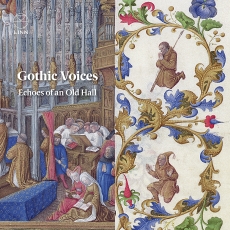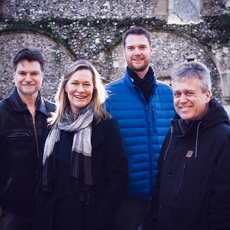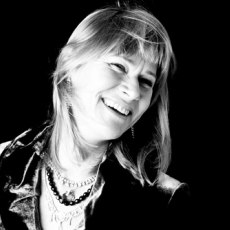Gothic Voices - Echoes of an Old Hall - Andrew Benson-Wilson blog
This magnificent recording from Gothic Voices takes a refreshing look at the much-recorded repertoire from the famous Old Hall Manuscript, the most substantial collection of English sacred music of the medieval period. It was compiled over several years leading up to c1420. The manuscript contains a number of examples of the influence of French composers on English music of the time. One example is the first piece on this recording, the wonderfully bouncy Arae post libamina / Nunc surgunt by Mayshuet de Joan, a French musician who spent some time in England in the mid 14th century.
Not only does the opening Arae post libamina (a piece that would normally be sung at the very end of a Mass, when the singers are able to let their musical hair down) set the theme for the recording (the cross-influences between English and continental music), but it is also based on a fascinatingly appropriate double text referring specifically to singers. “We will sing joyfully … we sing with a voice that is measured as reason commands … may we give sweet harmony and highy lyrical tone”. That pretty well sums up my review of Gothic Voices. The second text, Nunc surgunt, is rather more critical, referring to singers as “mercenary and hypocrites”.
The programme is divided into two contrasting halves, with each half further subdivided. The first half is given the title ‘Contenance Angloise‘ and refers to the name later given to the English style of composition reflected in the Old Hall Manuscript, notably in the frequent use of thirds and sixths, intervals regarded as discordant on the continent at the time. Composers include Damett, Cooke, Dunstable, Bytternig, and Power. The four sections reflect different aspects of religious devotion, ending in Christmas, with each culminating in a Mass movement. Dufay’s Veni sancte spiritus forms an extended central focus.
The second part of the programme, ‘Reverberances’, refers to the influence of the English style on the continent a generation or so later, with motets and chansons by such composers as Dufay, Lymburgia and Binchois. There is a gradual shift from the sacred to the secular. Dufay again provides a central pivot, with his Ave regina caelorum, the longest track on the recording. The interspersed Old Hall pieces are recorded at some distance, reflecting their echo from the past. Both halves end with a Gloria in excelsis, the final example by John Pycard, the rather formal canonic writing in contrast to the rhythmic freedom of Leonel Power’s version that concludes the first half.
The pieces in the second half are more varied in musical style, reflecting the change in compositional style over time. Dufay’s Flos florum is particularly striking, the hesitant gaps in the final bars leading to a beautifully quiet ending.
Both halves include Gregorian chant, sung solo by each of the four members of Gothic Voices: Catherine King, Steven Harrold, Julian Podger and Stephen Charlesworth. Catherine King also has one other solo spot, with Johannes Haucourt’s song to a sweetheart, Je demande ma bienvenue. Two additional singers join in some of the pieces. The singing of Gothic Voices combines their signature perfect blend, intonation and rhythmic accuracy with a delightful freedom of musical expression. The acoustics of Boxgrove Priory provide an attractive background bloom to the focussed sound.


